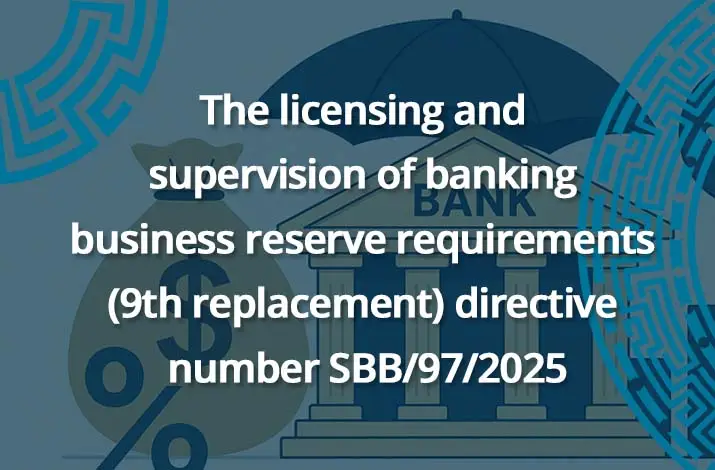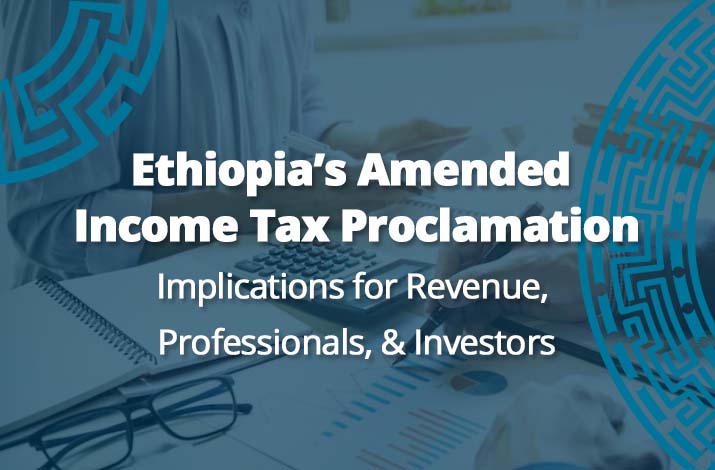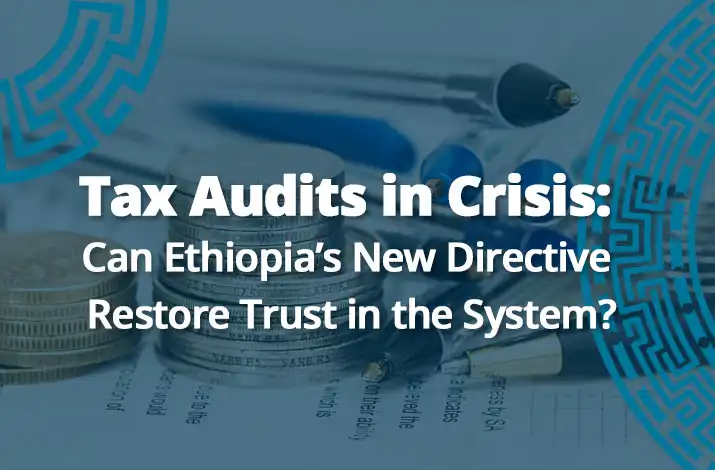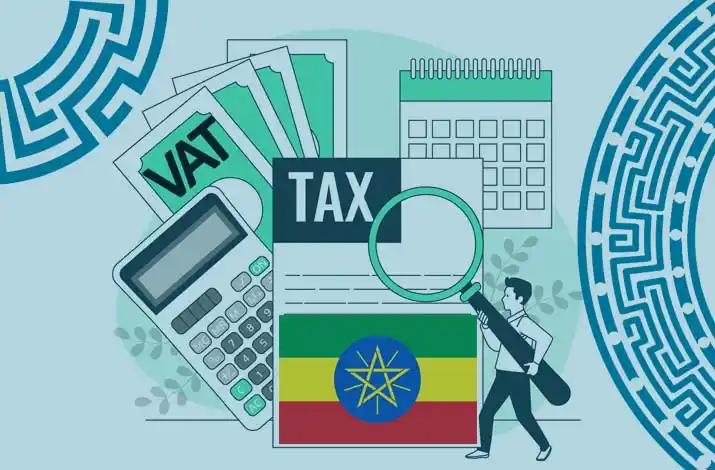U.S. International Tax Law in a Coffee Bean
Written by Coleman Jackson, P.C.
The highlands of Ethiopia are widely regarded as the birthplace of coffee. The story of Ethiopian coffee dates back to around 850 AD, when both Arabica and Robusta coffee are believed to have originated. Today, Ethiopia remains the top coffee producer in Africa, cultivating over 5,000 varieties. Coffee is a major global export for the country, where agriculture remains a key driver of the economy. Ethiopia also ranks first in wheat production and third in maize production across Africa.
But Ethiopia’s economy is evolving beyond agriculture. Recently, it became a member of the expanded BRICS alliance, joining Brazil, Russia, India, China, South Africa, Egypt, the UAE, and Indonesia. Ethiopia is making significant strides in several emerging sectors, including:
- Mining: Ethiopia possesses abundant, undeveloped mineral reserves, including gold and tantalum.
- Heavy Construction: Ethiopia’s robust emphasis on infrastructure is driving a construction boom in the country.
- Financial Services: Ethiopia recently announced that foreign banks could operate within the country for the first time in the nation’s history. Spurred on by industrial growth, banking and financial services are in demand.
- Industrial Sector: Ethiopia is scaling up its production of leather goods, cement, and textiles to boost economic growth.
- Pharmaceuticals: Ethiopia recently announced its ambitions to become Africa’s leading manufacturing pharmaceutical export hub.
- Energy Sector: Ethiopia’s recent completion of its hydroelectric dam project has energized expansion into wind, solar, hydroelectric, and geothermal power.
From the highlands of Addis Ababa, Ethiopia is poised to enter global trade on a new level, including with the United States. Understanding the key international tax and trade rules that govern cross-border transactions between the United States and Ethiopia is essential. As EAA’s reliable U.S. law firm friends, our international tax and cross-border trade lawyers at Coleman Jackson, P.C. can explain it all—in a coffee bean.
From the high plateau capital city of Ethiopia, the world’s valleys are in full view. Just as the gentle aroma of its coffee fills the air and invites pause, so too should we take a moment to consider the main international tax rules that shape cross-border transactions between the United States and Ethiopia. These U.S. international tax rules can be clearly understood through three essential coffee beans:
- The U.S. International Tax Law
- The U.S. Foreign Tax Credit (FTC)
- The U.S. application of any applicable international tax treaties
Let’s start with Coffee Bean #3, since there is currently no bilateral tax treaty between the U.S and Ethiopia.
Coffee Bean #3: U.S. Application of Applicable International Tax Treaties
The United States maintains international tax treaties with approximately 60 countries. These are bilateral tax agreements negotiated with and entered into by foreign countries to prevent uncoordinated taxation of the same income by two different countries.
Think of two coffee beans roasting together: they must share space carefully and collaborate to create a harmonious blend. Similarly, international tax treaties help two countries coordinate and balance their taxing rights. These treaties are designed to allocate tax responsibilities, reduce withholding tax rates, and establish a system to avoid double taxation. In this coffee bean analogy, tax treaties promote and facilitate fair trade between nations.
As Ethiopia’s businesses expand into the United States, and as U.S. businesses explore opportunities in Ethiopia, the absence of a bilateral tax treaty between the two countries should be a top priority for trade representatives and diplomats. While item three appears last in our list, it deserves first-order attention from both governments.
Now, let’s turn to the first coffee bean on our list: U.S. International Tax Law, which we’ll explain through two different brews: Outbound Transactions and Inbound Transactions.
Coffee Bean #1: U.S. International Tax Law
Outbound Transactions describe the economic reality that U.S. residents and citizens, regardless of where they live, are taxed on their worldwide income. This worldwide income rule applies to:
- Residents of the United States—including Green Card holders and foreigners meeting the Substantial Presence Test under the Internal Revenue Code (IRC),
- United States citizens, and
- Domestic corporations and all other business entities created under any state, tribal, or U.S. territorial laws.
This explanation omits the IRC sections to keep things simple, but readers should note that this area of law is complex. While U.S. taxpayers operating outside the United States are taxed similarly to those operating inside, there are significant differences—for example, in the depreciation of property located outside the U.S. Additionally, U.S. persons earning income abroad may enjoy certain exclusions not available to U.S. citizens operating solely within the United States. These examples illustrate the complexity of international tax, real estate, and business laws, as we frequently discuss in our blogs.
Inbound Transactions apply to nonresident individuals and nonresident business entities. Nonresidents are not taxed on their worldwide income. Under U.S. tax law, a nonresident is a foreigner who does not meet one of the following tests:
- Lawful Permanent Resident of the United States (Green Card holder),
- Substantial Presence Test (based on days physically spent in the U.S.), or
- A foreigner who elects to file a first-year election to be treated as a resident of the United States under IRC Section 7701(b)(1)(A).
If a foreigner meets any one of the above tests, they are treated as a resident and subject to U.S. tax on their worldwide income. If a foreigner does not meet any of the above residency tests, they are taxed only on income effectively connected to the United States.
This rule similarly applies to foreign corporations: a corporation formed under foreign laws is only subject to U.S. taxes on income effectively connected to its U.S. activities or operations. Corporate tax disputes generally arise over whether an entity is classified as a corporation or another form of business.
So, the two distinct brews of our first coffee bean—outbound and inbound transactions—are conceptually simple, but international tax law depends on all facts and circumstances. Additionally, exceptions not covered here include the One Big Beautiful Bill Act (OBBBA), also known as the “O3BA” among some tax professionals, which was enacted on July 4, 2025. This Act is expected to significantly modify the treatment of foreign income and credits as the U.S. increasingly encourages multinational corporations to bring operations and profits to America.
But for now, let’s turn finally to the foreign tax credit regime, which is poised to be impacted by the OBBBA of 2025.
Coffee Bean #2: Foreign Tax Credit (FTC)
The Foreign Tax Credit (FTC) can help reduce the burden of double taxation. Found in IRC Section 901, the foreign tax credit allows U.S. taxpayers to claim a credit for taxes paid to foreign countries. But not all foreign taxes qualify. A significant limitation is that the FTC only applies to income taxes imposed under Chapter 1 of the IRC. Taxes imposed under other chapters do not qualify for this credit.
The FTC is subject to numerous additional limitations, including sourcing rules and documentation requirements. In short, qualifying for the FTC is often complex and heavily scrutinized by the IRS, especially when significant amounts of foreign tax are involved or where treaty relief is unavailable. These limitations are especially relevant in light of recent legislative changes.
The One Big Beautiful Bill Act (OBBBA) of 2025: A Comprehensive Effort to Modernize International Tax Rules
While the “three coffee beans” offer a foundational understanding of key international tax concepts, there are additional developments and global considerations shaping the future of cross-border trade and taxation, notably the One Big Beautiful Bill Act.
Passed in July 2025, with most tax provisions taking effect on April 15, 2025, the One Big Beautiful Bill Act (OBBBA) introduces sweeping reforms to U.S. international tax law. Its main goals are to curb the ability of wealthy individuals and multinational corporations to minimize U.S. tax liability by using foreign tax credits, transfer pricing loopholes, and profit-shifting strategies to move income to lower tax jurisdictions.
This again highlights the importance of tax treaties. Tax treaties can serve as an independent basis for credits, provide negotiated tax treatment of specific economic activities, and even establish exclusions from U.S. tax law. The OBBBA includes provisions intended to work alongside treaty-based relief, helping to prevent double taxation and ensure income is not taxed in multiple jurisdictions.
The Act addresses a wide range of cross-border activities, including private transactions, sovereign debt transactions, trade finance, cross-border ACH, and more. Cross-border transparency is a core focus: the OBBBA allows multiple enforcement agencies to share information to ensure fair taxation of global income. It is an extremely comprehensive piece of legislation aimed at modernizing international tax rules and holding multinational corporations to fair standards of compliance. At this time, the implementing regulations have yet to be finalized by the U.S. Department of Treasury, and many parts of the OBBBA are likely to be shaped by future court decisions.
Finally, the OBBBA impacts numerous areas of law—not just international tax, but federal taxation, state and local taxation, and even business immigration, to name a few. In this blog, we’ve limited our focus to the OBBBA’s likely impacts on international tax and cross-border transactions.
Tariffs and Trade Law Considerations
U.S. tariff laws also play a major role in cross-border transactions. The Tariff Act of 1930, passed during the Great Depression, was enacted to address unfair trade practices, especially dumping—which occurs when goods are exported at prices below their production cost or market value, typically to give an advantage to companies in the exporting country.
To combat these practices, the U.S. imposes antidumping duties that protect domestic industries from unfair pricing. International laws like the General Agreement on Tariffs and Trade (GATT) also limit protectionist behavior by prohibiting countries from imposing heavier internal taxes on imports than on comparable domestic goods. Ethiopia, as a participant in such agreements, may benefit from these protections against unfair trade practices.
Importers and exporters involved in U.S.–Ethiopia trade should be aware that antidumping rules, tariff regulations, and international laws all apply to their cross-border transactions. Ethiopia’s participation in international organizations such as the World Trade Organization (WTO) may also provide mechanisms to ensure fair trade between the two countries.
International Tax Planning
As this blog illustrates, U.S. international tax law and fair-trade laws are complex, and they’re often shaped by shifting political headwinds at home and abroad. Still, the general concepts can be understood with just a few coffee beans.
The IRS may move slowly like a caterpillar, but even caterpillars can eventually fly and catch up. That’s why international business lawyers focus on careful tax planning, much like a farmer who tills and prepares the field before growing great coffee designed for global markets. Working with attorneys experienced in international tax planning can help businesses navigate evolving rules while remaining compliant.
International Tax Advocacy
Even with careful planning, global tax controversies can still trample the field, disrupting trade and risking penalties. Disputes involving foreign tax credits, audits, or cross-border enforcement actions often require a tailored legal response. Experienced legal counsel in international tax advocacy can provide strategic representation and defend clients’ rights.
International tax, like coffee, requires both understanding and balance. With trusted counsel, businesses navigating U.S.-Ethiopian relationships can achieve a smoother pour.
This law blog is written by the attorneys at Coleman Jackson, P.C., located at 6060 North Central Expressway, Suite 620, Dallas, Texas 75206, for educational purposes only. It does not create an attorney-client relationship between this law firm and the reader. You should consult with legal counsel in your geographic area regarding any legal issues affecting you, your family, or your business.
Coleman Jackson, P.C. | Tax Law, Business Law, Immigration Law | English: (214) 599-0431 | Spanish: (214) 599-0432 | Email: cj@colemanjacksonpc.com










